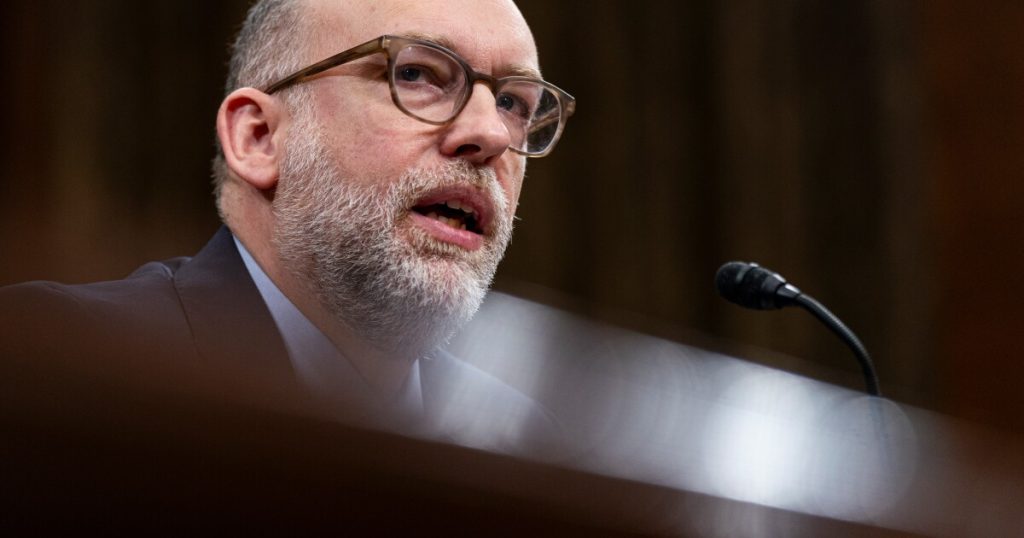- Key Insight: Acting CFPB Director Russell Vought claims the agency will run out of funding by year-end and cannot pay employees, so it is transferring its remaining litigation duties to the Justice Department.
- What’s at Stake: Vought was sued by the National Treasury Employees Union in March and a district court issued a preliminary injunction that prohibits the bureau from firing employees through a reduction-in-force.
- Forward Look: The bureau recently completed several proposals that would scale back Biden-era rules on discrimination in lending.
The Consumer Financial Protection Bureau plans to transfer its entire enforcement and legal divisions to the Department of Justice and will furlough all in-house enforcement attorneys, despite an existing injunction by a district court prohibiting the agency from mass firings.
At an all-hands meeting held late Thursday, Michael Salemi, the CFPB’s principal deputy enforcement director, told enforcement staff that more than 100 people would be furloughed because the CFPB is going to run out of money, according to several people on the call.
All remaining open legal cases in the enforcement division, as work by the legal division will be transferred to the Justice Department, Salemi told staff on the call.
The internal announcements come on the heels of acting CFPB Director Russell Vought stating that the CFPB will only have enough funds to operate through year-end. The CFPB said in
The funding issue prompted the Justice Department last week to
Vought has adopted a novel legal theory that because the Federal Reserve System has been unprofitable since 2022 that technically the CFPB director cannot request funding because the system is not profitable. The theory has been repudiated by many experts largely because the CFPB has been funded for the past two years.
The CFPB said that the Office of Legal Counsel “made this conclusion on the basis that the Federal Reserve System currently lacks any ‘combined earnings’ from which the Bureau may draw funding, as required by Dodd-Frank. OLC opinions are binding upon Executive Branch agencies including the Bureau.”
At the all-hands meeting on Thursday, Salemi told employees that he had limited information from senior CFPB officials. He thanked the enforcement team, while attorneys expressed sorrow that he had to deliver the message of their furlough. Though all enforcement attorneys will be furloughed, the two top enforcement officials will be given the opportunity to work for DOJ, according to sources on the call.
Separately, CFPB officials are preparing for a contingency plan on how mortgage lenders will work out the Average Prime Offer Rate, or APOR, if the agency shuts down. The CFPB calculates and publishes weekly APOR rates, providing a benchmark and stability for mortgage lending. The rates also are used to determine Ability-to-Repay rules.
CFPB officials are planning to publicly outline a new method for calculating APOR that would allow the industry to calculate it for themselves by providing an alternative use of readily-available data, people familiar with the matter said. It is unclear yet whether the approach will be accepted by lenders. One expert said it is unclear if the secondary market for mortgage credit seizes up because of “very real private liability concerns.”
The change in APOR is another sign that the CFPB is preparing for a future where it may not fulfill its mandated duties, indicating a shift in regulatory strategy, experts said.
In addition, last week the CFPB issued two proposed rulemakings — making major changes to the 1071

